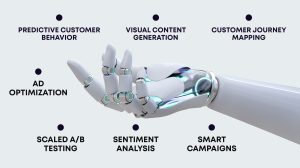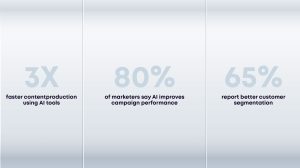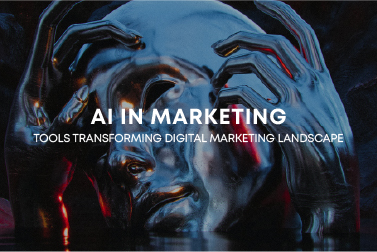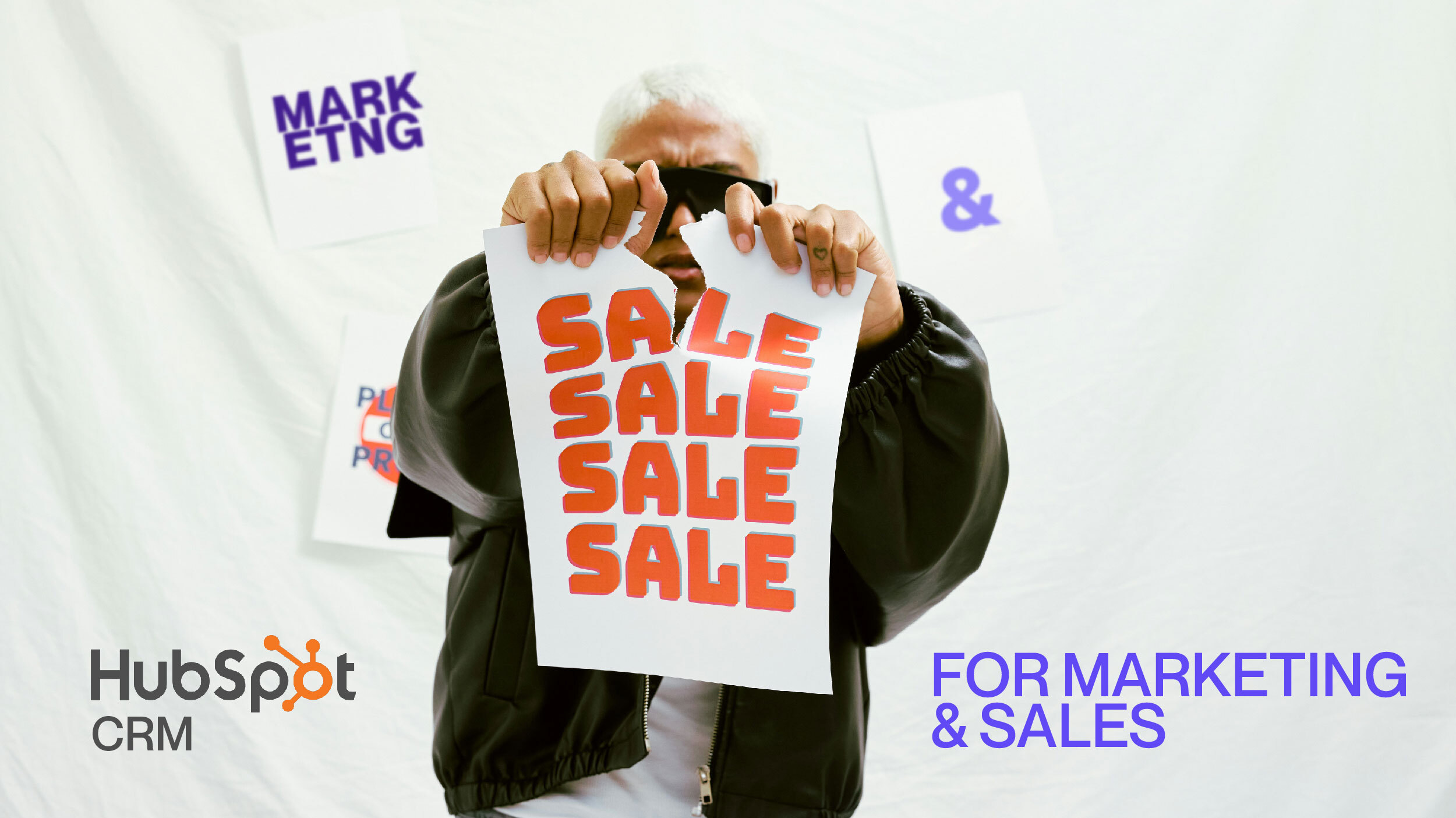You have heard of and even used AI in marketing if you work in this industry. AI has become a powerful tool that helps companies develop marketing strategies, comprehend data, and engage with their target market. While marketers receive an assistant to facilitate the completion of their tasks.
AI’s role in marketing is significant. They can process huge amounts of data much faster than any human team identifying valuable insights for smarter marketing tactics. This shift is pushing us to reconsider the way we reach our audiences.
AI helps with marketing by making things personal. Isn’t it cool? A brand that understands us is a perfect one. Right? Well, that’s where AI comes to the rescue. AI customizes user experiences enhancing interaction relevance, increasing engagement, and ultimately making more people take action. This is how you can move beyond one-size-fits-all marketing.
AI has transformed customer service operation processes. AI-powered chatbots can easily handle inquiries, giving quick responses and enhancing customer satisfaction. This automation minimizes human interference and improves overall experience.
Predictive analytics is another area where AI can be useful. It enables marketers to understand customer behaviors and preferences, resulting in more effective marketing campaigns.
In this article, we’ll explore the use of AI in marketing and the impact of these tools on marketing strategies and practices.
The Rise of AI in Digital Marketing

Technological changes have a direct effect on digital marketing development throughout the years. AI is a fundamental shift in how businesses utilize marketing strategies.
AI’s entry into marketing has been gradual but significant. At first, it served as a data management asset. Yet, now it offers advanced solutions as the capabilities develop daily.
Artificial intelligence makes complex and time-consuming tasks to be done without big efforts. Among these are data analysis, customer segmentation, and predictive modeling. These tasks are executed more quickly and precisely thanks to AI.
The integration of AI into marketing helped create more dynamic and responsive campaigns. Strategies can be adjusted in real-time by AI tool to meet constantly changing market conditions and consumer behaviors.
As AI technologies develop, their role in marketing also grows. Its impact will expand on content creation, customer interactions, and much more. The usage of AI in digital marketing promises to revolutionize the industry’s future.
Key AI Tools Transforming Marketing Strategies
When it comes to marketing trends, now they can rely on AI tools. Their ability to analyze data quickly increases the demand. This ability helps improve the accuracy of marketing campaigns to meet customer demands.
Various AI tools offer distinct advantages:
- AI-Powered Analytics Tools: Boost data interpretation for more informed decisions.
- Chatbots: Improve customer service with chatbots that offer immediate assistance.
- Personalization Mechanisms: Send personalized marketing ads and messages.
- Content Generation Tools: Create personalized and relevant content.
- SEO Tools: Improve search engine rankings and optimize keywords.
These tools work altogether to improve overall marketing results. They improve productivity and provide more in-depth understanding. AI makes marketing a more data-based and precise science.
In addition, AI systems are capable of doing jobs that used to demand a lot of human involvement. They enable marketers to concentrate on projects that require more strategy and creativity. This change is crucial in an increasingly competitive marketplace.
As AI tools get more advanced, the necessity to change marketing tactics arises. Their impact will expand across all areas of marketing. To maintain a leading position in digital marketing, it is crucial to make the most of these tools.
Personalization at Scale with AI
The demand for personalized experiences is growing rapidly. AI offers enhanced scalability in personalization. It can understand each user’s preferences by analyzing their data.
AI gathers and analyzes massive volumes of information. Companies then use this data to predict customer behavior and preferences. With this feature, marketers may efficiently provide personalized content to big audiences.
Also, personalization isn’t just about content. AI can customize interactions, scheduling, and even channel preferences. Ultimately, you will get a more engaged and satisfied customer base. Customer loyalty can be greatly improved with AI-driven customization.
AI-Driven Content Creation and Curation
Marketing heavily depends on content creation. AI tools simplify this process by generating and creating content. They create effective messaging thanks to trend and data analysis.
To top it all, they can help content teams in generating full articles and other creative materials. They analyze existing content, suggesting improvements or optimizations. As a result, content is more relevant and of higher quality.
Besides, AI-based content tools also are also great at curation. They go through digital data to find out what people like. Marketers benefit from this and keep content channels tailored and up-to-date.
Predictive Analytics and Customer Behavior Forecasting
Artificial intelligence also succeeds in predictive analytics. AI detects trends and patterns in customer data predicting their behaviors. Marketers use this data to create high-impact campaigns.
The result is tailored marketing and less wasted efforts. Understanding future needs allows marketers to better manage resources. This is super useful for inventory planning and product promotions.
Furthermore, AI-driven analytics systems are always learning and adapting. As more data is processed, predictions become more accurate. This constant change guarantees that marketing strategies remain relevant to changing consumer behaviors. The predictive power of AI systems is the backbone of modern marketing initiatives.
Chatbots and Conversational Marketing
Chatbots usage is increasingly growing in customer support. They respond quickly and efficiently to requests. This quickness boosts customer satisfaction and retention.
Beyond simple requests, chatbots offer individualized inquiries. They can access user data and preferences to provide personalized responses. This level of interaction is critical for developing successful customer relationships.
Chatbots are also available round-the-clock. They are handling many inquiries at the same time, minimizing wait times. Consequently, they improve customer experience while freeing up human resources for other duties. AI-powered chatbots are the future of conversational marketing.
Enhancing Customer Experience with AI
AI is revolutionizing the customer experience by providing unique personalization. This transformation is based on the ability to examine large amounts of data efficiently. Businesses can use these insights to create unique customer journeys.
One of the key advantages of AI in this field is the ability to understand customer requirements. This proactive approach increases satisfaction and loyalty. By predicting customer needs, brands can provide solutions before a request is even made.
Furthermore, AI facilitates communication via platforms like chatbots. These tools manage customer requests quickly and precisely. Real-time solutions build reliability and confidence.
AI also personalizes information to boost the quality of user interactions. By understanding user behavior and preferences, AI tailors relevant suggestions. This level of customization strengthens the relationship between brand and consumer.
Real-Time Interaction and Support
AI-powered support solutions have revolutionized customer service. Intelligent chatbots and virtual assistants have made real-time interaction a reality. These tools respond promptly to customer requests.
Besides, AI adapts its responses based on the conversation’s context. This process improves user satisfaction by making sure interactions run smoothly and are relevant. Customers no longer face the frustration of generic responses.
Waiting time drastically cut by real-time support. Efficiency is preserved even during peak times with AI handling inquiries. Customers are more loyal and likely to engage again if they can have their problems solved quickly.
AI-Powered Personalization in Email Marketing
AI has significantly improved email marketing. AI tools analyze previous user interactions to personalize email content for each recipient. This technique creates relevant and engaging communications.
AI also can identify the best timing for sending emails to increase open rates. Each email is made and sent depending on user preferences and behaviors. The results are more meaningful interactions and effective campaigns.
AI-based email campaigns can adjust in real time. Analytics give feedback to refine messaging and targeting. This flexibility ensures that email marketing stays dynamic and responsive, meeting consumer needs.
AI’s Role in Advertising and SEO
AI power has also reached the advertising world thanks to advanced technologies and approaches. Using AI marketers can design more targeted and efficient campaigns. Consequently, guesswork is minimized and strategic approach comes to the stage.
AI-driven insights allow precise targeting. By concentrating efforts on high-potential prospects, this precision helps reduce wasted ad spend. This is how businesses can increase engagement and return on investment.
Moreover, AI boosts SEO by predicting trends and user intentions. By processing search data, AI can optimize content for higher rankings. This functionality guarantees that businesses maintain relevance and visibility in search results.
Marketing is not possible without competitor analysis and AI tools can help with this point as well. Understanding the tactics used by others can lead to gaining a competitive edge over your competitors.
Programmatic Advertising and Targeted Campaigns
Programmatic advertising is one of the most advanced features of AI in marketing. Automated purchase processes ensure ads reach the intended audiences. An ultimate level of precision is available for targeting demographics.
AI offers real-time bid analysis, enabling efficient budget allocation. This strategy has altered how advertising targets potential customers. As a result, campaigns become more cost-effective and efficient.
In addition, continuous growth of programmatic tactics improves targeting criteria and ad placements, increasing tool efficiency. The agility of AI-based advertising supports new, responsive marketing techniques.
SEO Optimization with AI
AI can provide intelligent insights to boost SEO. By predicting user intentions, AI can create content that meets searcher intends. This optimization results in higher ranking and visibility across search engines.
More importantly, AI technologies can recognize shifts in search trends. Adapting to these changes in real-time ensures content relevancy. Businesses get an advantage over competitors who only use traditional strategies.
Additionally, AI is able to monitor SEO performance, assessing key metrics for continuous improvement. This data-driven approach advances understanding of what strategies bring the best results. SEO specialists can adjust their efforts based on this data.
The Future of AI in Digital Marketing

AI is developing and so is the future of digital marketing. It promises to bring new approaches as its capabilities advance. Businesses that accept and use these changes are likely to succeed.
Newly introduced AI technologies will provide solutions that will further facilitate marketing efforts. They will provide insights that lead to more engaging and effective campaigns. To succeed marketers must stay informed and make the most of it.
AI’s integration into marketing tools is becoming smoother. This progress makes it easier for companies to use AI’s power.
Adapting to AI-Driven Marketing Trends
As AI systems advance, continuous learning becomes highly important for marketers and businesses alike.
Businesses should invest in AI training to develop knowledge base. This way all parties can fully utilize AI’s potential. A well-informed team can make data-driven decisions to improve performance.
Flexible strategies enable rapid responses to AI-driven shifts in customer behavior. Such approach is crucial for keeping a strong market presence.
Ethical Considerations and Privacy in AI Marketing
As AI becomes more common in marketing, ethical concerns emerge. The biggest issue is becoming transparency in the way AI processes customer data. To develop trust, marketers must follow guidelines.
Privacy concerns are equally important in AI-powered marketing. Customer data protection hugely impacts company credibility. Clear disclosure conditions regarding data usage can build trust loyalty within clients.
Ensuring justice and equality in AI applications reduces potential reputational issues.
Conclusion: Embracing AI for Marketing Success
The use of AI in digital marketing is a major trend. These changes consumer and company relations, boosting growth. Marketers who use AI tools open up new potentials for success.
AI can affect personalization, automation, and analytics across marketing efforts. Companies using these features increase their efficiency and effectiveness. This leads to increased customer satisfaction and drive better business outcomes.
Marketers must be flexible to maintain their success throughout time. Using AI demands continual learning and adaptation.
HOGI, a branding and digital marketing agency, uses AI in marketing to improve every aspect of its services. Through advanced AI tools, HOGI provides predictive audience insights, real-time performance tracking, and automated content strategies. Their use of artificial intelligence in marketing enables smarter targeting, more efficient campaign execution, and more profound customer engagement. By integrating AI in digital marketing, HOGI ensures clients stay ahead with scalable, data-driven marketing solutions.
For a detailed overview of AI in marketing, check out these insightful articles:
- Artificial Intelligence in Marketing – Forbes
- How AI is Shaping Digital Marketing – Simplilearn
- AI in Marketing: Trends to Watch – AdAge
FAQs about AI in Digital Marketing
What is AI in marketing?
AI in marketing refers to using smart technologies. It helps analyze data, predict trends, and automate tasks. This enhances marketing strategies overall.
How do AI tools benefit businesses?
AI tools offer numerous benefits. They improve efficiency and data analysis. Such improvement leads to better decision-making and targeted campaigns.
Can AI replace marketers?
AI is a tool, not a replacement. It augments human creativity and intuition. Marketers still play a crucial role.
Is AI expensive for small businesses?
Many AI tools are cost-effective. They cater to businesses of all sizes. Accessibility is increasing as technology evolves.
What is the future of AI in marketing?
AI’s future in marketing is promising. It will continue evolving, offering deeper insights and innovation. Staying informed is key to leveraging its potential.
Are there ethical concerns with AI in marketing?
Yes, ethical concerns exist. Privacy, consent, and transparency are critical. Marketers must address these responsibly.




